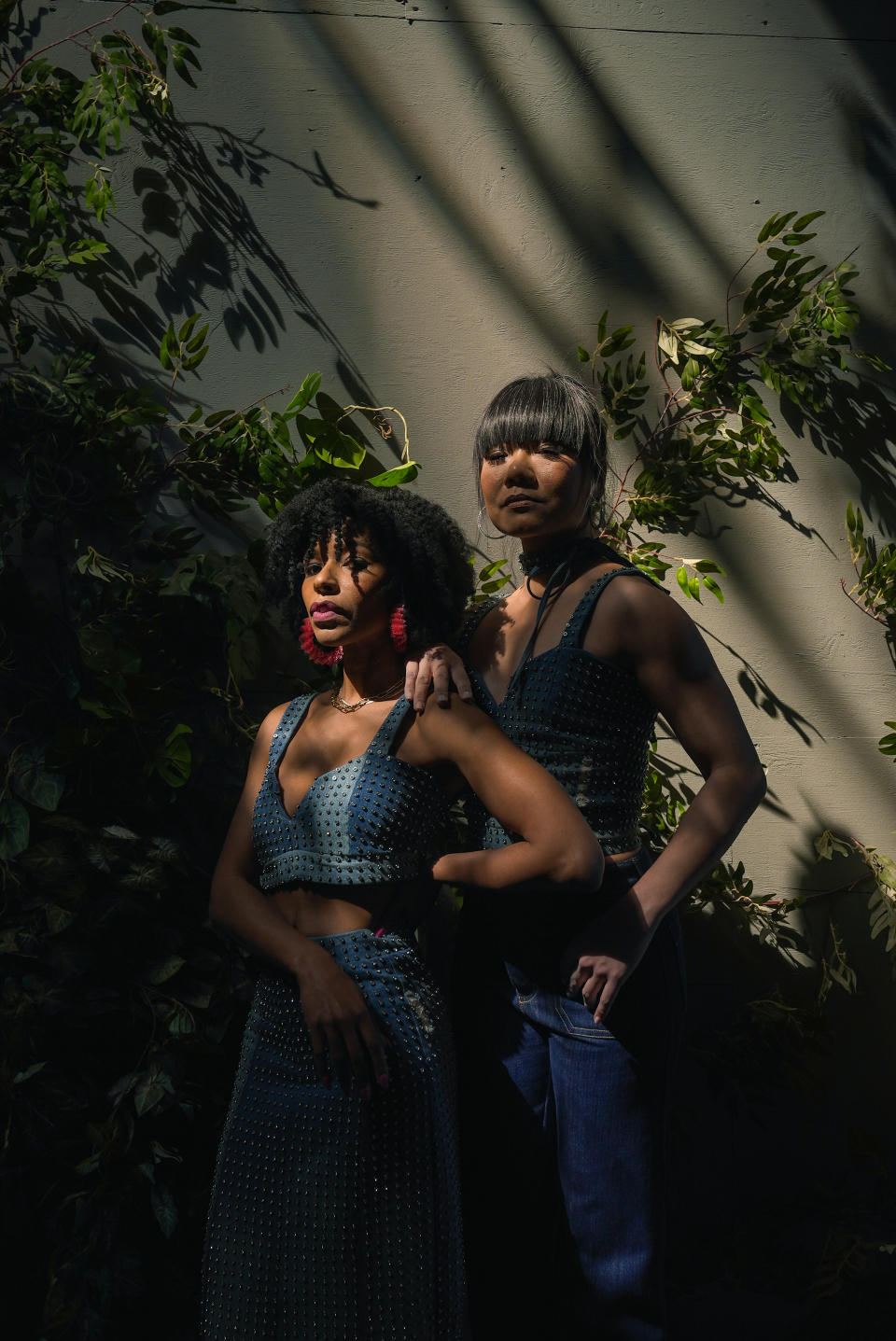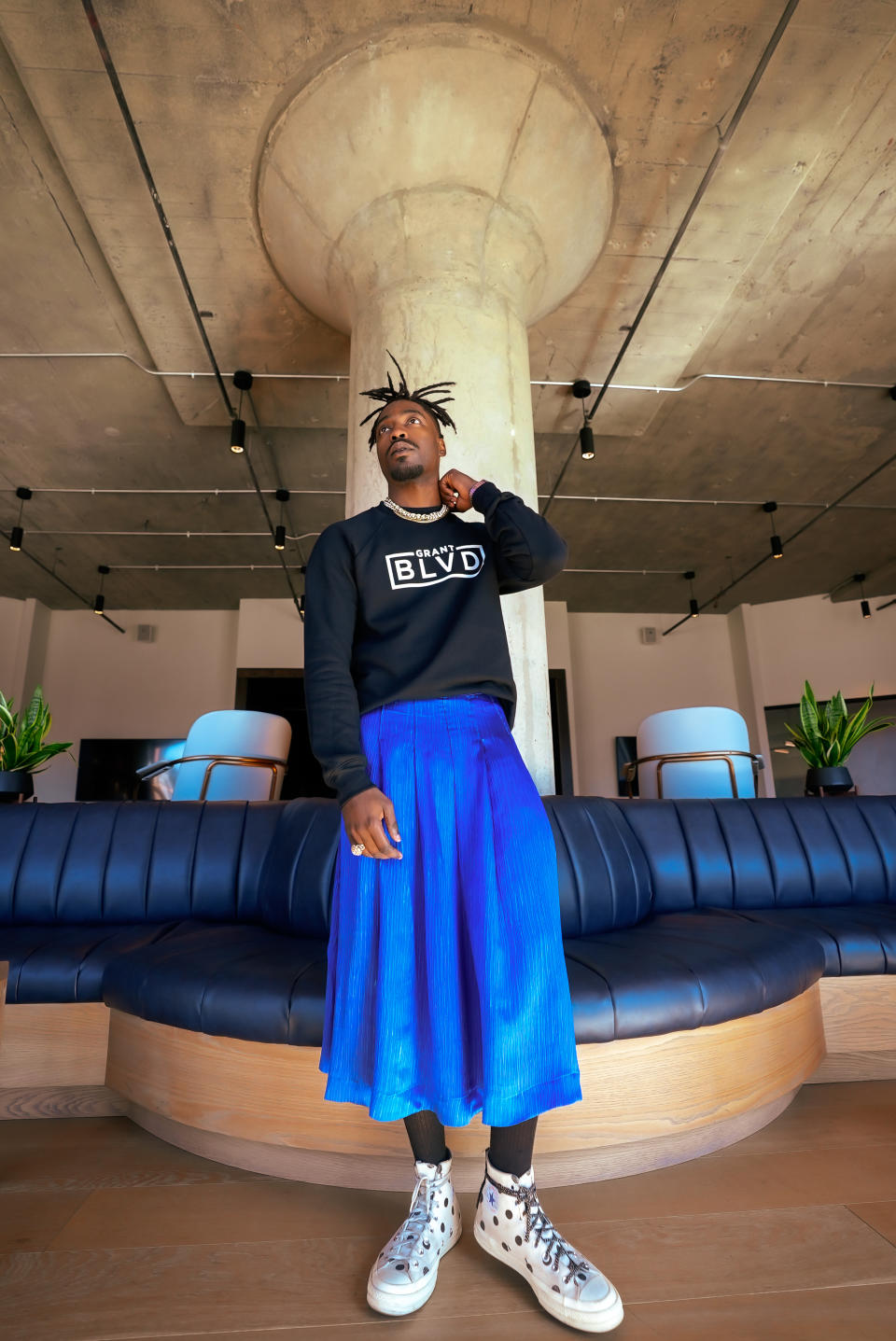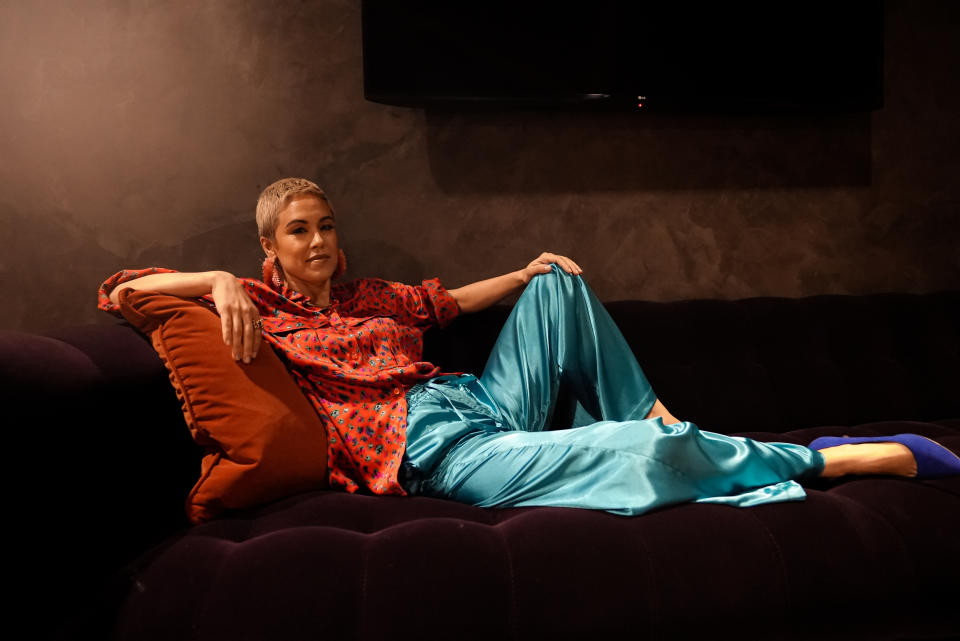Grant Blvd Opens on University of Pennsylvania Campus, Aims to Create Local Jobs for the Formerly Incarcerated

With the opening of Grant Blvd, Kimberly McGlonn is among the few Black business owners to have a location on the University of Pennsylvania’s campus.
The 900-square-foot boutique bowed Saturday and is the latest addition to the school’s retail district, which covers 10 city blocks and houses hundreds of stores and restaurants. Penn Facilities and Real Estate Services is working with consultants to create a new retail master plan and is polling students, faculty, staff and neighbors about their shopping and dining habits and preferences.
More from WWD
With more than 28,000 enrolled students, the university offers not just a built-in community but also a forward-thinking one. Grant Blvd founder McGlonn noted how its international community is “thinking very differently about the future of the planet.” Designed to be reminiscent of an art gallery, the space features fashion anchored in activism.
Her first retail venture in Philadelphia, Black Ivy, remains open in a renovated car garage and has been reimagined as a thrift store.
“For our artist’s statement, we’re focusing on how we are framing the movement, which is thinking about the history of fashion being rooted in colonialists’ supply chains and practices and our efforts to challenge that by trying to manufacture locally — wherever we exist,” McGlonn said.
Committed to helping create job opportunities for formerly incarcerated Black and brown individuals, Grant Blvd plans to produce, cut and sew its brand in Philadelphia to “really do our part to try to improve the quality of life in the city,” the founder said. As of the end of March, there were 4,336 individuals incarcerated in Philadelphia, according to the MacArthur Foundation’s Safety and Justice Challenge.
Her efforts include paying a living wage to all employees and prompting the conversation “that in the largest poorest city in North America there is another way forward and fashion can be a catalyst for economic development and change,” McGlonn said. As of December 2020, Philadelphia was the “poorest” of the major cities with 23.3 percent of residents living in poverty. However, the percentage of Philadelphians living in poverty has been declining since 2011, according to the Economy League of Greater Philadelphians.
The store’s unveiling created seven new jobs, 10 more manufacturing ones are planned for the next three months, and seven more are slated for later this fall. Helping those who have been impacted by the criminal system and developing workforce development programs are also key parts of the business plan.

Saturday’s opening was sponsored by the Cake Life Bake Shop, a woman- and trans-owned bakery that counts Beyoncé among its customers. The store space highlights nature and “radical transparency,” such as a gold-framed explanation of pricing. The pluses and minuses of select fabrics are also being displayed such as polyester’s benefit of durability and liability of using petroleum. That list will continually be updated.
In 2020, McGlonn was among the small business owners that received a $10,000 grant from Beyoncé’s BeyGOOD Foundation. Last year Black Enterprise presented McGlonn with its “Business Disruptor of the Year” award at its annual meeting.

Intent on executing a data-driven experiment in fashion and a “new way forward,” McGlonn will soon embark on a first seed investment round seeking $3 million. “The ambition from the beginning has most certainly always been to do exactly what we’re doing in Philadelphia in other cities across North America.” The plan is to partner with the city and local nonprofits to create local workforce development opportunities in manufacturing and retail, and to create in-store destinations “that make cities feel proud of what they contribute to America and who they are that really resonates as thoughtful and authentic,” she said.
Knowing that fashion can be a tough sell with investors concerned about capital efficiencies, McGlonn hopes that some will be intrigued by her company’s focus on thinking more systematically about how to alleviate poverty through paying living wages. Noting how Pennsylvania spends an estimated $46,000 annually for each incarcerated individual, she said that figure does not take into account the impacted children, who have lost breadwinners.
“For us, it’s a matter of how are we going to address our crime issue by improving quality of life? It’s just a different tactic for addressing a consumer need through more sustainably made, ethically produced fashion and also a community’s need for jobs that allow people to live and not rely on criminality and cycles of recidivism to survive,” she said.
After being released from prison, some fall back into “criminal decision-making due to poverty,” she said. In addition, poverty can inhibit people from access to mental health services and also lead to discrimination in seeking housing.
In addition to offering Grant Blvd apparel, the store sells local accessories and beauty items such as the Black woman-owned Gold + Water Co. The handcrafted skin care line’s ethos is in sync with McGlonn’s belief that luxury comes down to “how are you able to take care of other people on the planet? That’s the experience that we plan to give our guests,” she said.
Retail prices for apparel start at $64 for zero-waste menswear and top off at $498 for a dress made from deconstructed and reconstructed studded denim. Within a year, McGlonn expects the store to be profitable. Looking ahead at potential expansion on other college campuses, the entrepreneur sees university-based retail as a prime place to demonstrate what it means to offer “radically inclusive hiring and how to build community and meaningful integration in different ways on college campuses.”

Although Black residents make up 43.6 percent of the city’s population and are its largest racial group, less than 3 percent of local businesses are owned by Black people, she said. With Philadelphia mirroring brick-and-mortar trends in other cities, the Philadelphia 76ers’ proposal to build a new arena on part of the Fashion District Philadelphia is a matter of public debate. Those potential store closings have caused concern among some Chinatown residents, who rely on those stores, she said. “One of the cases for why the Fashion District shouldn’t exist is that it’s a huge, old traditional mall that hasn’t figured out how to translate itself into what would feel like a 21st century experiential space,” she said.
Acknowledging how hybrid working and online shopping have hammered retail in many U.S. cities, McGlonn is well aware of the blight of the ’80s that struck New York and Philadelphia. “I really hope we don’t return to that, because we can’t get our balance right in terms of convenience and really showing up for our neighborhoods.”
Best of WWD


